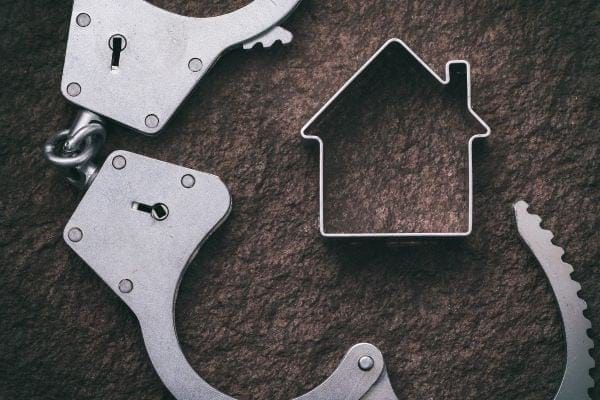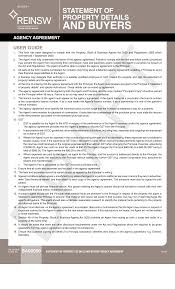
It can be hard to find an apartment at New York City. This is a highly competitive market with high rents and limited inventory. It can be difficult and time-consuming to search for apartments without the help of a broker. If you are careful and make use of the right resources, there are no-fee rentals in NYC that can save you thousands of bucks over the term of your lease.
No Fee Rentals in NYC: What to Look for
You have many options when it comes to finding a rental, condo or co-op apartment. The best way to find these is to go directly to the building or management company and ask them if they have any no fee listings.
NYBits No Fee Listings
NYBits, New York's oldest rental site, lets users search for affordable apartments by building type (condos or co-ops, rental or rental), area, companies (brokerage and property manager, individual brokers) and even neighborhood. It's an excellent choice if your goal is to find a no fee apartment with flexible terms.

RentHop Manhattan Brooklyn Queens Apartments, No Fee
RentHop offers a huge selection of listings that are free in all major areas of the city. It also includes a handy filter that allows you to quickly search for no-fee listing in certain areas.
Websites are sourced from places like the Real Estate Board of New York. Each listing is reviewed by its team to ensure that it isn't a bait-and switch scam. The website also offers an interactive map that allows you to see all the available options without paying a fee in your local area.
Streeteasy, Renthop and Zumper all offer apartment-finding apps with a "no fee" filter. This allows you to find no-fee online apartments with the right monthly rent.
Apartments for Rent by the Owner are Free
Some people have the luck to find free-of-charge apartments that belong to their family or friends. This is a great way of saving money. However, it is important to verify the listing and make sure that there are no middlemen.

No Commission Real Estate Agents - The Agency
If you're searching for an apartment in NYC that's rented with no broker, it's best to work with a reputable real estate agent. They will have a good understanding of the New York City rental market, and can provide valuable insight about the apartments that you are interested in.
Flat fees of 10 percent are charged by the Agency. This is much better than the 12 to 15% that most real estate agents charge. Their team is tech-savvy, responsive, helpful, and a great choice if your search requires extra hands. They'll guide you through every step of the leasing process, and ensure your paperwork is in order prior to you signing a lease.
FAQ
How much will my home cost?
The number of days your home has been on market and its condition can have an impact on how much it sells. Zillow.com reports that the average selling price of a US home is $203,000. This
What are the benefits to a fixed-rate mortgage
Fixed-rate mortgages guarantee that the interest rate will remain the same for the duration of the loan. This will ensure that there are no rising interest rates. Fixed-rate loan payments have lower interest rates because they are fixed for a certain term.
How many times may I refinance my home mortgage?
This is dependent on whether the mortgage broker or another lender you use to refinance. In both cases, you can usually refinance every five years.
Should I buy or rent a condo in the city?
If you plan to stay in your condo for only a short period of time, renting might be a good option. Renting will allow you to avoid the monthly maintenance fees and other charges. A condo purchase gives you full ownership of the unit. You have the freedom to use the space however you like.
How can I get rid of termites & other pests?
Over time, termites and other pests can take over your home. They can cause serious damage to wood structures like decks or furniture. It is important to have your home inspected by a professional pest control firm to prevent this.
Statistics
- This means that all of your housing-related expenses each month do not exceed 43% of your monthly income. (fortunebuilders.com)
- This seems to be a more popular trend as the U.S. Census Bureau reports the homeownership rate was around 65% last year. (fortunebuilders.com)
- Private mortgage insurance may be required for conventional loans when the borrower puts less than 20% down.4 FHA loans are mortgage loans issued by private lenders and backed by the federal government. (investopedia.com)
- Some experts hypothesize that rates will hit five percent by the second half of 2018, but there has been no official confirmation one way or the other. (fortunebuilders.com)
- 10 years ago, homeownership was nearly 70%. (fortunebuilders.com)
External Links
How To
How to Manage a Rental Property
Although renting your home is a great way of making extra money, there are many things you should consider before you make a decision. These tips will help you manage your rental property and show you the things to consider before renting your home.
This is the place to start if you are thinking about renting out your home.
-
What factors should I first consider? Before you decide if you want to rent out your house, take a look at your finances. If you have outstanding debts like credit card bills or mortgage payment, you may find it difficult to pay someone else to stay in your home while that you're gone. Your budget should be reviewed - you may not have enough money to cover your monthly expenses like rent, utilities, insurance, and so on. It might not be worth the effort.
-
What is the cost of renting my house? There are many factors that go into the calculation of how much you can charge to let your home. These factors include location, size, condition, features, season, and so forth. Remember that prices can vary depending on where your live so you shouldn't expect to receive the same rate anywhere. Rightmove reports that the average monthly market price to rent a one-bedroom flat is around PS1,400. This means that if you rent out your entire home, you'd earn around PS2,800 a year. Although this is quite a high income, you can probably make a lot more if you rent out a smaller portion of your home.
-
Is this worth it? There are always risks when you do something new. However, it can bring in additional income. It is important to understand your rights and responsibilities before signing anything. You will need to pay maintenance costs, make repairs, and maintain the home. Renting your house is not just about spending more time with your family. Make sure you've thought through these issues carefully before signing up!
-
Are there any benefits? It's clear that renting out your home is expensive. But, you want to look at the potential benefits. You have many options to rent your house: you can pay off debt, invest in vacations, save for rainy days, or simply relax from the hustle and bustle of your daily life. No matter what your choice, renting is likely to be more rewarding than working every single day. If you plan well, renting could become a full-time occupation.
-
How do I find tenants Once you've made the decision that you want your property to be rented out, you must advertise it correctly. Make sure to list your property online via websites such as Rightmove. Once potential tenants reach out to you, schedule an interview. This will help you evaluate their suitability as well as ensure that they are financially secure enough to live in your home.
-
How do I ensure I am covered? If you don't want to leave your home empty, make sure that you have insurance against fire, theft and damage. In order to protect your home, you will need to either insure it through your landlord or directly with an insured. Your landlord will likely require you to add them on as additional insured. This is to ensure that your property is covered for any damages you cause. This does not apply if you are living overseas or if your landlord hasn't been registered with UK insurers. In such cases you will need a registration with an international insurance.
-
It's easy to feel that you don't have the time or money to look for tenants. This is especially true if you work from home. It's important to advertise your property with the best possible attitude. Post ads online and create a professional-looking site. It is also necessary to create a complete application form and give references. Some people prefer to do everything themselves while others hire agents who will take care of all the details. You'll need to be ready to answer questions during interviews.
-
What should I do after I have found my tenant? You will need to notify your tenant about any changes you make, such as changing moving dates, if you have a lease. You may also negotiate terms such as length of stay and deposit. It's important to remember that while you may get paid once the tenancy is complete, you still need to pay for things like utilities, so don't forget to factor this into your budget.
-
How do you collect the rent? When it comes to collecting the rent, you will need to confirm that the tenant has made their payments. If your tenant has not paid, you will need to remind them. After sending them a final statement, you can deduct any outstanding rent payments. You can call the police if you are having trouble getting hold of your tenant. They will not normally expel someone unless there has been a breach of contract. However, they can issue warrants if necessary.
-
How do I avoid problems? You can rent your home out for a good income, but you need to ensure that you are safe. Make sure you have carbon monoxide detectors installed and security cameras installed. Check with your neighbors to make sure that you are allowed to leave your property open at night. Also ensure that you have sufficient insurance. Finally, you should never let strangers into your house, even if they say they're moving in next door.